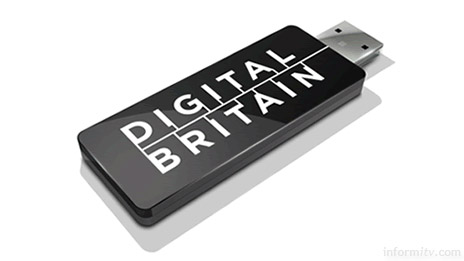The future of Digital Britain has been revealed. The bad news is that the country will continue to fall behind if there is not significant investment in next generation networks. The government outlined its plans in an interim report that promises universal access to broadband–with speeds of at least 2Mbps by the time London hosts the 2012 Olympics. Scream if you want to go faster.
The Digital Britain report underlines the importance of the communications sector, its crucial contribution to the economy and its role in building Britain’s financial future. It makes all the right noises about the benefits of digital investment, without providing any practical promise of public investment or incentive to private enterprise.
The interim report outlines an action plan to upgrade wired, wireless and broadcast infrastructure, create a dynamic investment climate for digital services, and provide a range of high quality public service content and enable the online delivery of public services.
Its author, Lord Carter, the minister for communications, technology and broadcasting, and the former chief executive of the communications regulator Ofcom, said: “The innovation, creativity and vitality of our communications industries rightly demand clarity from government on its role and a framework for the future.”
The report contains more than 20 recommendations, although most amount to little more than headline proposals for further reviews.
The unambitious target is to enable everyone in Britain to have access to broadband with a data rate of at least 2 megabits per second by 2012. This seems eminently achievable, given that it can already be delivered to over 90% of the population.
The average broadband home in Britain actually receives around 3.6Mbps at the moment, according to Ofcom. Over 60% of consumers currently subscribe to packages promising speeds of up to 8Mbps, although 20% of them receive an actual average speed of less than 2Mbps.
2Mbps is barely enough for decent video. In some countries, 100Mbps broadband is already widely available. In South Korea there are proposals for converged communications networks offering speeds of up to 1Gbps, which is five hundred times faster than will be available for much of Britain.
By the time of the London Olympics, it seems that a broadband viewer in Hong Kong will get a better view of the games than someone watching on the BBC iPlayer, or its successor, down the road in Hackney.

The hope, it seems, is that copper cable telephone connections will be supplemented by mobile broadband, as suggested in the image of USB wireless dongle on the cover of the report.
As far as fibre-optic connections are concerned, there appears to be little prospect of a regulatory environment that will stimulate investment.
The cost of connecting home in the country directly to a fibre optic network has been put at around £25 billion. In comparison, the British government has injected tens of billions of pounds into the banking system in recent months to very little tangible benefit. The £5 billion required to connect every street cabinet to a fibre network, giving an average speed of around 20Mbps to most homes and businesses, seems like a comparative bargain given the wider economic and social benefits.
The current economic climate may lead the government to move beyond the current laissez faire market-led regulatory regime towards a more interventionist agenda.
With many broadband connections in some countries capable of delivering 20Mbps, 50Mbps and 100Mbps or more, which is still only the speed of a typical office network, the lack of vision or excitement in the proposals for Digital Britain have disappointed critics and commentators.
“The existing network will meet many users’ needs for some time to come,” concludes the report. “But, if a substantive planning cycle for material network upgrade is not launched soon, then the UK will not have the necessary infrastructure in place when it needs it.”
Digital Britain: The Interim Report is available for download from the Department for Culture, Media and Sport web site.
Interested parties are invited to provide further input into the Digital Britain proposals. In April there will be an open Digital Britain Summit, before the publication of the final report in the early summer.
